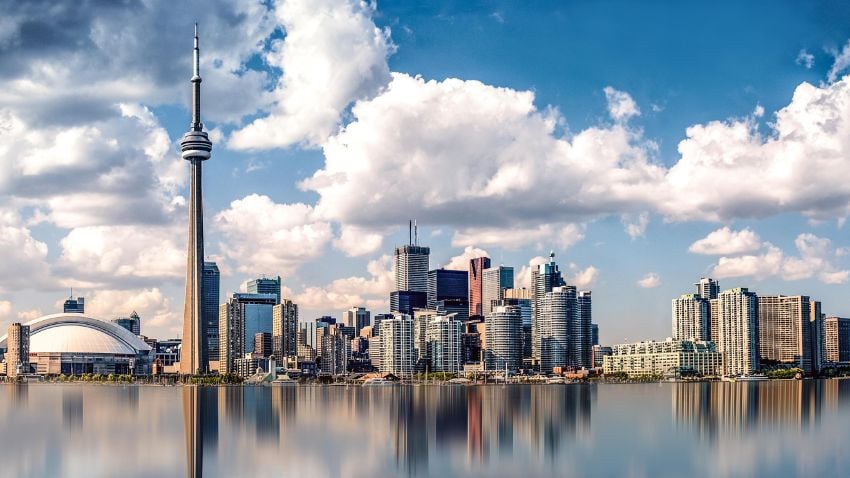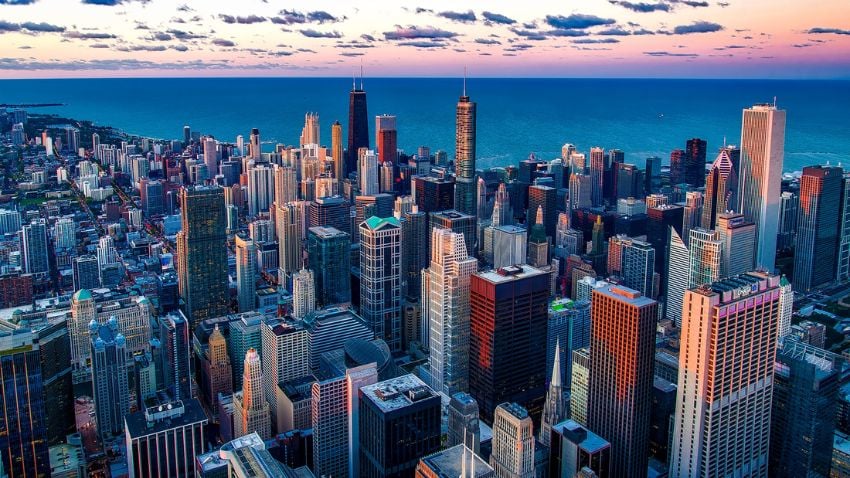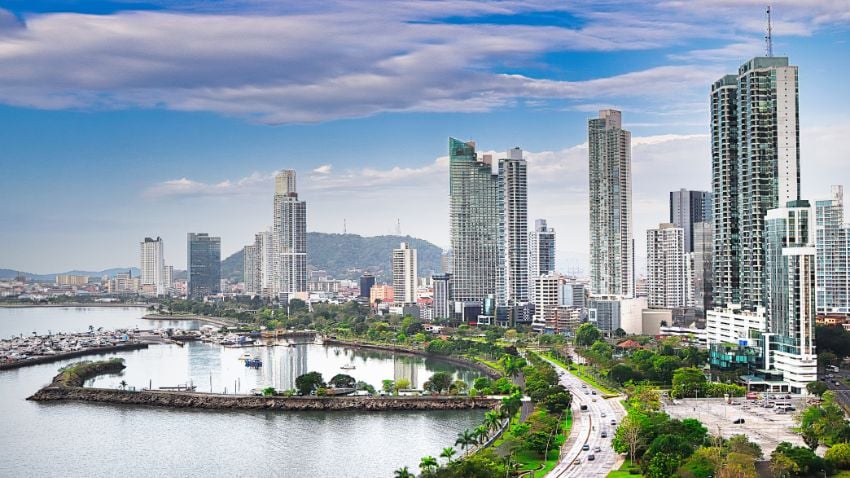Top Things To Do In Panama In 2026
Panama’s geographic size is modest, but its global relevance is not. The country connects two oceans and two continents, operates on a dollarized...

6 min read
Imagine a metropolis in which corporations are the primary suppliers of public services, generating an atmosphere that encourages rivalry and invention. This is not a fantasy; welcome to the world of Free Private Cities. These autonomous zones have unique systems of governance, offering us a chance at true freedom.
In these free cities, you'll find city operators who ensure smooth running by managing administration and security. Thanks to pioneers like Titus Gebel, we now understand how feasible such models can be.
This exciting new form of social order offers protection for citizens through independent dispute resolution mechanisms. Moreover, it allows governments to compete, thereby pushing them towards efficiency and innovation - sounds thrilling, right?
Dive into this article as we delve deeper into the concept behind Free Private Cities – from their establishment process, including overcoming legal challenges all through the benefits they offer residents.

Titus Gabel is one of the pioneers of Free Private Cities
The concept of Free Private Cities brings a refreshing change to traditional governance systems. Imagine cities where a private company, referred to as the 'City Operator,' handles administration and security. It's like buying services from your favourite service provider but on an entirely different level.
Private Cities, at their core, are unique zones characterized by distinctive governance systems that bring about autonomy and freedom. The role of City Operators here is not just administrative but protective, too. They're tasked with ensuring order while allowing for individual freedoms.
In these autonomous territories, City Operators work much like CEOs running corporations rather than politicians managing states or provinces. Their primary job is to ensure peace and stability within city boundaries while fostering economic growth through smart policies.
Apart from offering protection against external threats, they also need to resolve internal disputes fairly and efficiently, which often involves independent dispute resolution mechanisms based on Private commercial law principles.
If you've heard about free Private cities before, it's likely due to one man: Titus Gebel. His pioneering work led him to envision this new form of societal organization after realizing conventional models weren't delivering the desired results for many people across the globe. Titus Gebel’s book ‘Free Private Cities’ offers more insight into his vision if you wish to delve deeper into understanding how such cities could function effectively while respecting citizens' rights better than traditional government structures do today.

At the core of a free private city lies a unique business model where all services traditionally offered by governments are provided by third parties or residents themselves
At the heart of a free private city is its unique business model. Here, all services traditionally offered by governments are provided by third parties or residents themselves. This radical shift brings us to the core feature: The Citizen Contract.
Titus Gebel's vision outlines how these contracts work in his pioneering concept for Free Private Cities. Essentially, it’s an agreement between citizens and their service provider – outlining rights, obligations, and independent arbitration procedures if disputes arise.
This contract forms the backbone of each resident's life in a free private city. It clearly defines what they can expect from their government service providers as well as what is expected from them in return.
In essence, you could see this contractual relationship akin to subscribing to Netflix; just replace movies with public services like security or infrastructure management.
All other functions not covered under these agreements fall onto third-party businesses or individuals within the community itself - leading to increased efficiency through competition. Each entity operates under international commercial law, which adds another layer of protection for everyone involved.
If there's any disagreement about these terms, an independent dispute resolution mechanism steps in;
Making sure fairness prevails over arbitrary decisions;
This structure greatly reduces economic risk for investors, too.

Free Private Cities deliver services more efficiently than coercive governments, and that is the key here, both morally and economically
Free Private Cities are a hotbed for innovation, largely because they make governments compete. This competition fosters efficiency in governance akin to the dynamic seen in business markets.
The concept of "government as a service" is key here. Traditionally, coercive governments provided services. However, under the free cities model, these services can be delivered more efficiently and effectively.
This new approach to social order adheres strictly to international law principles but gives it an entrepreneurial spin. It's not about toppling existing structures but rather adding a fresh layer of possibilities onto them.
Building free private cities isn't a walk in the park. It's an ambitious endeavour that needs strategic planning, negotiations with host countries, and meticulous legal work.
One hurdle to leap over is crafting the legal framework for these autonomous zones. Advisory councils, comprising experienced lawyers and experts, are formed to address this issue. They draft agreements with host countries which form the bedrock of a city's status.
This involves ironing out issues related to international commercial law, handling potential disputes about arbitral awards or tackling situations where a city operator ignores contractual obligations. The solution often lies in creating robust dispute-resolution mechanisms that align with international standards.
The goal? To make sure no one can unilaterally change agreed rules without facing consequences - such as customers leaving en masse or being obliged to pay damages under independent dispute resolution procedures.
In terms of external security, it might surprise you how many governments are open-minded about granting special economic zones within their borders – but they do want reassurances on maintaining social order. So contracts must clearly outline responsibilities around defence against foreign threats and internal policing arrangements.

Security and policing within Free Private Cities are more efficient as they are private
Free Private Cities offer a unique blend of benefits that cater to freedom-loving individuals. Let's delve into some key advantages, focusing on economic growth opportunities and rights protection mechanisms.
In free private cities, residents experience the unrivalled potential for prosperity. These autonomous zones operate under international commercial law, which attracts businesses seeking regulatory stability and predictability. This encourages economic activity and fosters wealth creation among inhabitants.
A testament to this is seen with special economic zones and smaller-scale versions of free private cities that have achieved significant success worldwide by offering attractive business conditions.
Contrary to traditional governance models where laws can unilaterally change without consent from citizens, rules within a free private city are contractually fixed via citizen contracts - enhancing individual liberty and certainty for residents. If disputes arise between the service provider (city operator) or other citizens, they're settled through an independent dispute resolution mechanism rather than biased government courts.
This model has been recognized as better at protecting rights compared to coercive governments according to studies like those shared in our newsletter. Such assurances provide peace of mind for residents who know their freedoms won't be arbitrarily violated; indeed, it's another compelling reason why people are attracted to these new urban concepts.

In free Private cities, residents have the unparalleled opportunity for prosperity
If you're a freedom-loving individual, the idea of free private cities probably gets your pulse racing. Let's explore some existing projects.
The most notable example is arguably that spearheaded by Titus Gebel, founder and president of Free Cities Foundation. His vision for autonomous zones under international commercial law has been transformative in this space. But where will the next batch of these trailblazing locations appear?
Gebel himself suggests we should be keeping an eye on regions such as Africa, Asia, and Central America for future developments in this sphere. This hints at a shift away from traditional power centres towards areas hungry for economic growth and social change.
A key element to successful projects is what service providers offer residents within their jurisdictions - essentially, how they deliver 'government services'. A well-functioning city operator doesn't just oversee infrastructure development but also helps maintain social order through independent dispute resolution mechanisms when needed.
This model allows customers to leave if dissatisfied with service provision or if the city operator ignores contractually fixed agreements. In effect, it makes governments compete with each other – an exciting prospect.
Intrigued? You can learn more about ongoing efforts via the Free Cities Foundation, who are committed to making governments more accountable through competition inspired by today’s guest: free market capitalism itself.

The private governance offered by Free Private Cities generates the incentive to make other governments compete with each other, and competition, for the market, is something that can generate better service provision at a good cost-benefit ratio
Exploring Free Private Cities: Our Chance At Freedom, you've discovered a unique social order. A model where private companies play key roles in providing government services, and city operators manage administration and security.
You've learned about the innovative Citizen Contract - a cornerstone of these cities that outlines rights and obligations for residents. You've delved into the business models behind free private cities and how they encourage governments to compete, sparking innovation in governance.
From understanding the steps involved in establishing these autonomous zones to recognizing their potential economic growth opportunities – it's been quite an exploration!
In short, Free Private Cities are more than just spaces; they represent a new wave of freedom through improved governance systems.
If you want the best intel from the expat world, including profitable offshore opportunities, little-known tax-saving strategies, and hard-won insights on immigration, passports, and Plan-B residencies, all delivered to your inbox every single week, then join our daily correspondence, EMS Pulse®. Currently enjoyed by over 84,000 expats and expat-hopefuls worldwide. Fill in the form below to join our newsletter free:

Written by Mikkel Thorup
Mikkel Thorup is the world’s most sought-after expat consultant. He focuses on helping high-net-worth private clients to legally mitigate tax liabilities, obtain a second residency and citizenship, and assemble a portfolio of foreign investments including international real estate, timber plantations, agricultural land and other hard-money tangible assets. Mikkel is the Founder and CEO at Expat Money®, a private consulting firm started in 2017. He hosts the popular weekly podcast, the Expat Money Show, and wrote the definitive #1-Best Selling book Expat Secrets - How To Pay Zero Taxes, Live Overseas And Make Giant Piles Of Money, and his second book: Expats Guide On Moving To Mexico.

Panama’s geographic size is modest, but its global relevance is not. The country connects two oceans and two continents, operates on a dollarized...

Honduras’ newly elected president, Nasry Asfura of the conservative National Party, was sworn in on January 27, 2026. The election, held on November...

For a growing number of Americans, cost-of-living math no longer works. Housing feels harder to reach, everyday costs keep climbing, and long-term...